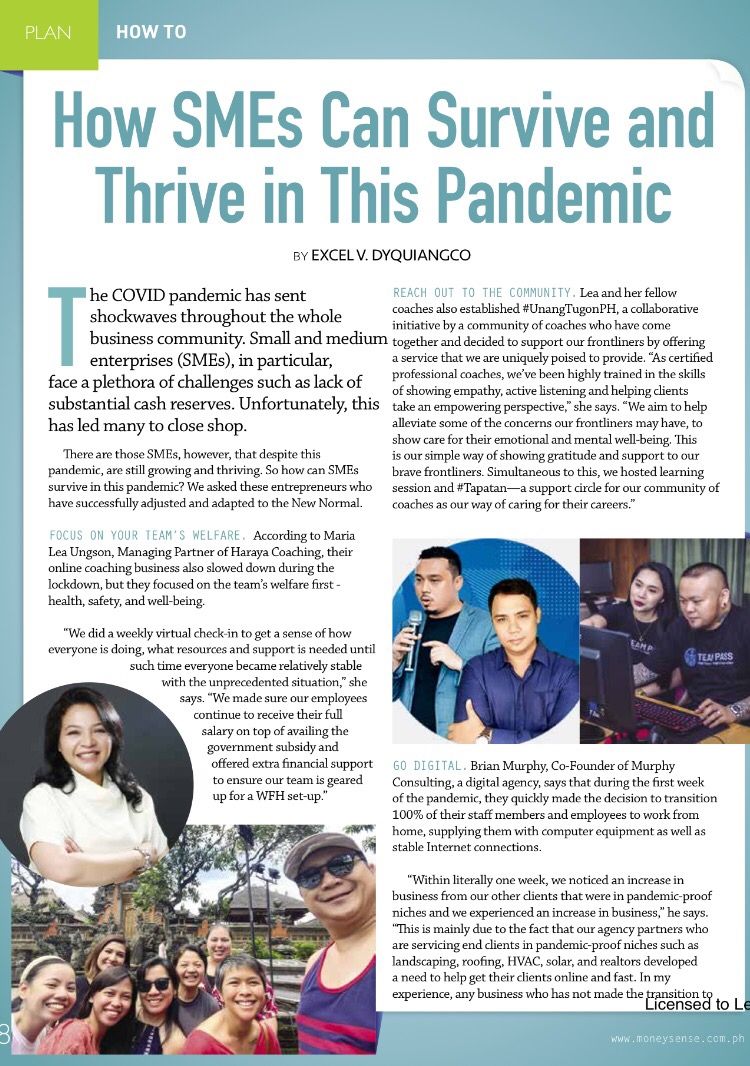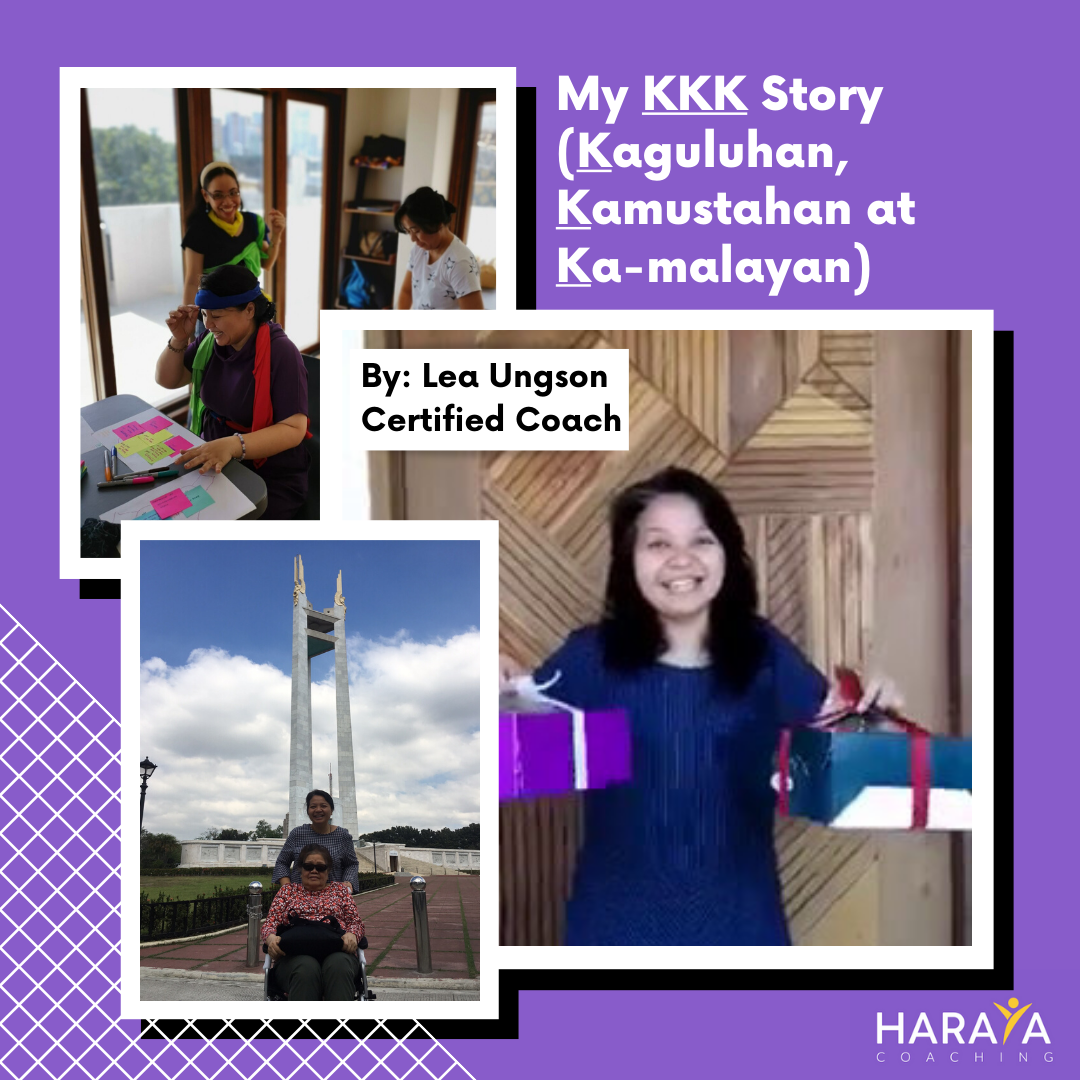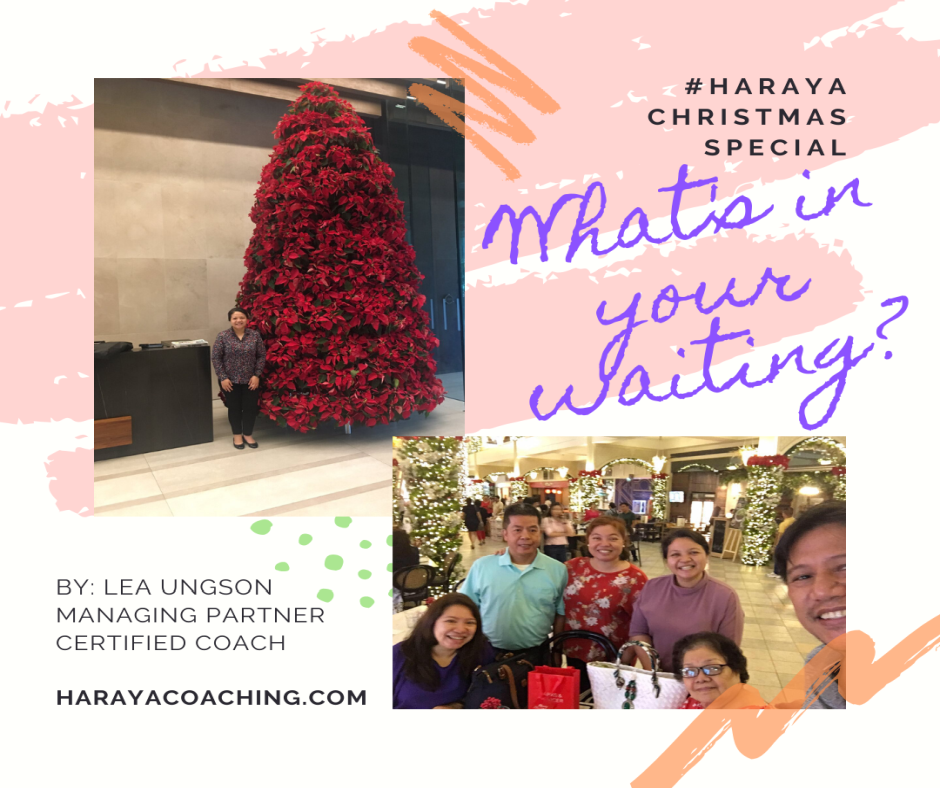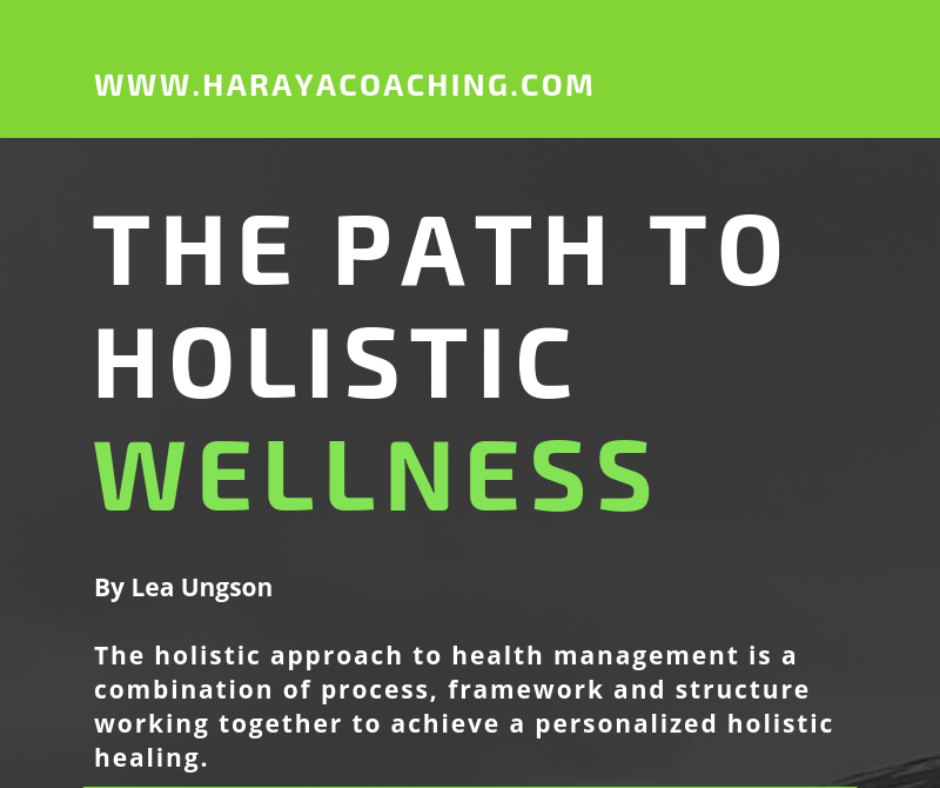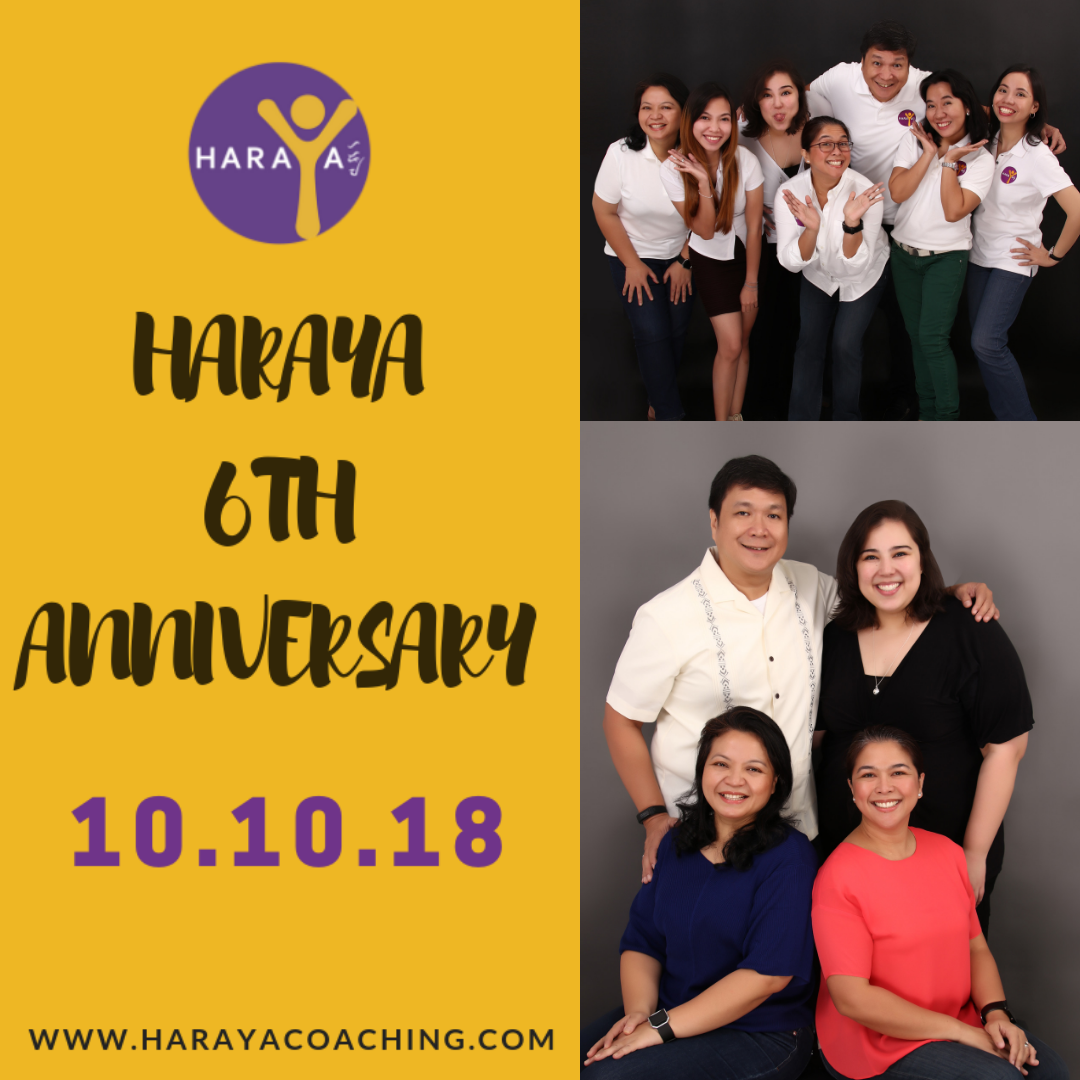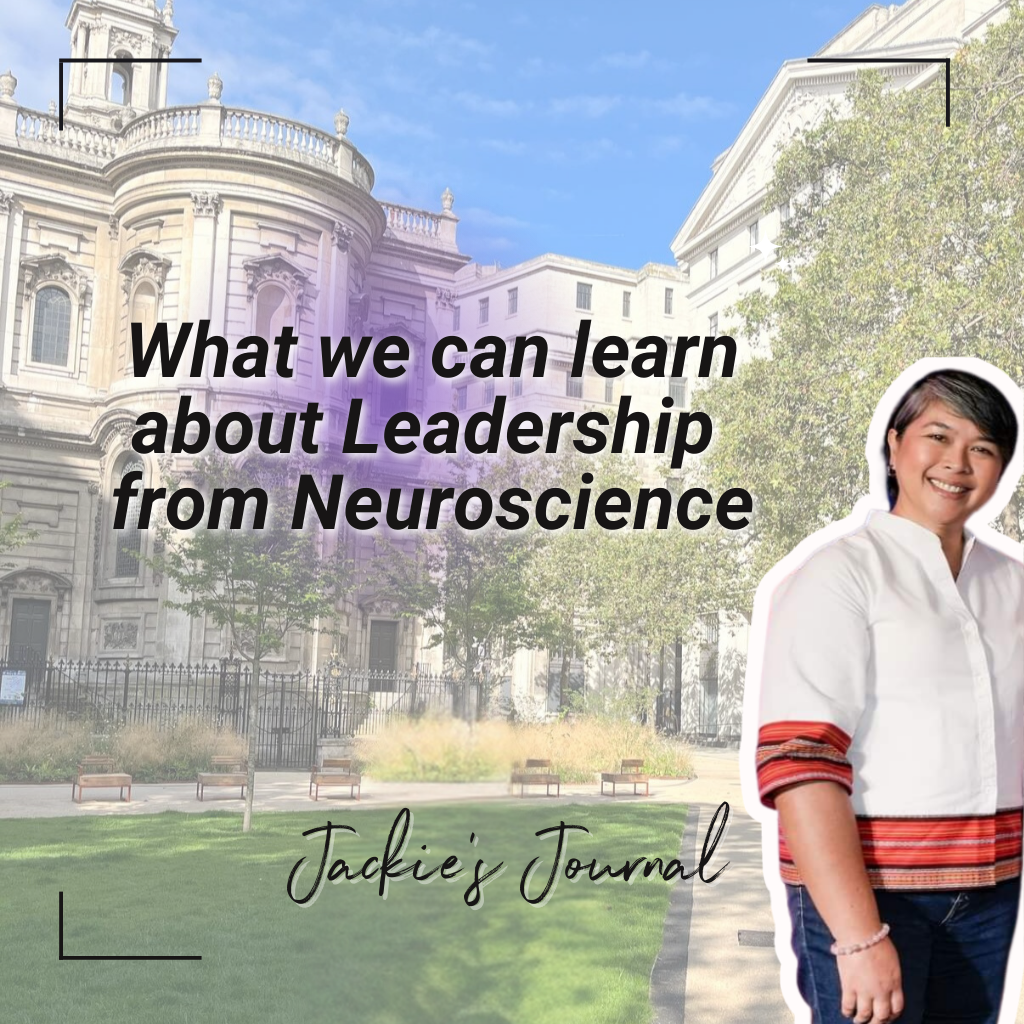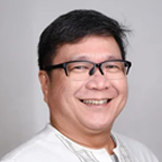Tapping into your core in times of crisis
(An interview with Lea Ungson on Haraya Pivot for MSP)
MSP: How has your business been affected by the current pandemic?
Lea: Like most other businesses, our coaching business slowed down during the lockdown considering that existing and ongoing engagement has to take a temporary pause given the quarantine restrictions and WFH set-up for most of our clients. Ongoing discussion regarding new and potential business partnerships in Q1’2020 has to be deferred given shift in focus and re-prioritization of companies toward people health & safety, business continuity and contingency plans. Our saving grace are the program proposals that we were able to close in the last quarter of 2019 and strong full year performance which gave us a solid head start in 2020.
MSP: What measures did you implement to survive this pandemic? How challenging was it?
Lea: First off, we focused on our team’s welfare – health, safety and well-being. We did a weekly virtual check-in to get a sense of how’s everyone doing, what resources and support is needed until such time everyone became relatively stable with the unprecedented situation. We made sure our employees continue to receive their full salary on top of availing the government subsidy and offered extra financial support to ensure our team is geared up for a WFH set-up.
Alongside, we also asked ourselves how can we be of value and service to the community during this trying time, how can we make a difference? This reflective inquiry gave birth to #UnangTugonPH – a collaborative initiative by our community of coaches who have come together and decided to support our frontliners by offering a service that we are uniquely poised to provide. We gathered over 50 volunteer coaches who have generously offered their time to take phone calls or host online dialogues at no charge. As certified professional coaches, we’ve been highly trained in the skills of showing empathy, active listening and helping clients take an empowering perspective. We aim to help alleviate some of the concerns our frontliners may have, to show care for their emotional and mental well-being. This is our simple way of showing gratitude and support to our brave frontliners. Simultaneous to this, we hosted learning session and #Tapatan – a support circle for our community of coaches as our way of caring for the carers.
Next stop, we kept an open line of communication with our valued clients to check every stage of their transition. For those who we have ongoing engagement at the start of the year, we made a recommendation to shift our sessions and work via online / virtual platform already to sustain the momentum. For all other clients we sent a message of support and giving value by offering #Ka-malayan – a deep dive process at no cost on their end through one-on-one interviews and FGDs to help them create an awareness on the current state of where their teams and organization are at, in terms of their well-being, dynamics and leadership during this trying time. A report will be submitted to them with recommended action steps which they may implement at their discretion. We believe that by partnering in creating awareness in them, they will be in a better position to optimize their performance over the long term and help them transition effectively into the new normal.
Finally, my partners and I went into an internal & creatively facilitated Re-imagination Workshop: Into the Better Normal, tohelp us pivot our business. As we pivot, we kept in mind to stay true to who we are, our why and what we value as a team and company. We objectively look into our people, process, clients and financials. We spent time to revisit who do we serve now and moving forward. Keeping ourselves in the know on various business reviews, forecast and economic outlook, we began to imagine what will the new normal look like and what are the potential emerging needs where can be of value in addressing them. Then we started to consider how to leverage what we have currently on hand – our tools, resources, programs, certifications, coaches’ community and existing strategic partnerships. The whole team started rethinking the way we do our business, the call for embracing the new normal, learning new skills, adapting to new technology, redesigning our programs to make it suitable for online delivery and developing new coaching models to facilitate heightening of awareness and deepening of learning.
It was challenging in the sense that when we started to regroup, the outer world noise is immense that one can easily be drawn to put something out there at once, to strike while the iron is hot, to join the bandwagon of online sessions and just become an expert suddenly on something to fill in the world’s needs. In our case however, we took a step back and chose to stay grounded on the why, what and how our company was built on. We used this time to reflect and reinforce the kind of work we do and value we bring to all our engagement and partnerships regardless of the conditions we’re in. All these, I give back the credit to the whole team ably led by our founder, Jackie Cañiza, the engaged partners, Nature Calderon, TJ Nadres, Cecilia Schrijver and the supportive team, Marge Martinez, Zai Diegor, Vanneza Cazil and Genesis Magno.
MSP: What made you say that your business is surviving or thriving?
Lea: As we speak, our #UnangTugonPH and #Ka-malayan programs have taken traction, select companies have signed up for it and a number of other companies are starting to inquire if we can extend this to their respective organizations. More and more companies now are recognizing the value of caring for their employees’ mental and emotional well-being that a professional coach can provide by their presence, active listening and acting as support system for self-care and managing stress & anxiety. In fact, in the new guidelines for General Community Quarantine, the government is now asking employers to provide access to mental wellness help lines.
The pandemic may have enforced physical distancing but more than ever it called for a different level, sense and depth of connection considering the impact on human behavior of the various changes it has caused like increasing need for contactless transaction, increasing levels of anxiety & depression brought about by isolation & uncertainty, business downsizing / closure, loss of jobs, less spending, increased entrepreneurial efforts, prolonged working hours and unclear boundaries between work and home life in a WFH set-up, to name a few. These changes created the need for wellness & self-care response, virtual presence, career transitions, agile leadership, engaging virtual teams / audience, new business model design, WFA (work from anywhere) adaptability and continuous learning, reskilling & upskilling. Coaching and training profession now more than ever will have demand in both local & international space and will play a vital role in addressing some of these emerging needs brought about by the new normal. As reported in the shifts in the Low Touch Economy by the board of innovation and business experts’ projection that the e-learning industry will be one of the flourishing industries in this period.
MSP: Do you think all SMEs will survive this pandemic? Why or why not?
Lea: I cannot speak for all SME’s as it may vary and depend on different factors. A case in point is the nature of business and industry type that an SME caters to. There are specific industries that will be burdened outright by this pandemic, those for example that thrive on mass gatherings, steady flow of walk-ins, group accommodations and mobility. The sudden drop in demand, cash flow & supply chain disruption, displacement of trained workers/employees, change in purchasing behavior & priorities of consumers, and additional cost related to compliance to new normal operations around health & safety as directed by the government, to name a few, may have a hard hit in the mid to long term, however, it doesn’t follow that said SMEs will not survive cause survival in itself has many factors to be considered as well. We cannot dismiss the perspective and mindset that SMEs have – the commitment to their purpose, the resolve, resilience and creativity to recover, pivot, diversify their business and the access to available resources and support to fuel their business.
MSP: Give at least three ways for businesses, especially SMEs, to survive this pandemic.
Lea: Putting out a disclaimer here, what I will share is based on my personal experience and perspective, these may be in no way applicable to others as circumstances may vary from one SME to another.
Stay grounded and have a clear understanding of what your company stands for – your identity, purpose and values that translates to the kind of work and value that your company bring to your clients and partners. Giving value & service first over making profit is key not only during this trying time. As the famous quote of Maya Angelou says “At the end of the day people won’t remember what you said or did, they will remember how you made them feel”
Hone in to the kind of mindset and perspective you hold around the business that you ventured into as that will drive the behavior and outcome of where the business will go. Having what it takes, for example, that mental toughness / alertness, physical wellness, solid entrepreneurial, determined & creative spirit to cease the opportunities behind any crisis. Openness to continuous learning, reinvention and humility to seek help from others (e.g. your partners, team members, credible mentors). Readiness to leverage what is in place so far in your business. Being on the lookout for emerging needs, upcoming trends, buying patterns and business outlook that your business may be able to pivot into. Having an honest and objective assessment of your business state (knowing one’s threshold and when to call the shot).
Keeping the faith and having an attitude of gratitude. I personally believe that challenges placed along our way serve as detour, a re-direction of some sort. We may not see the new long road ahead of us yet each step is a call for something new and better – a call for discovery, appreciation, acceptance, realization, learning, giving importance, reinforcement and many more. Gifts and blessings that we will look back to when we finally reach the end of that new road.


